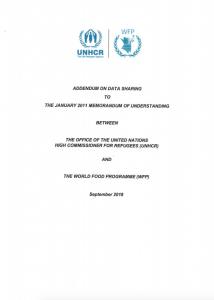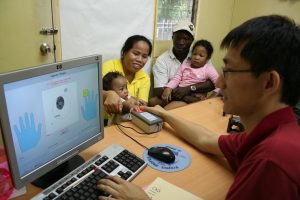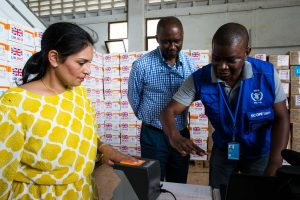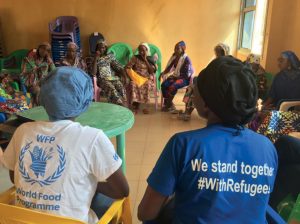Data Systems Interoperability and Data Sharing
With rising humanitarian needs and limited resources, coordinated and accessible data is essential for efficient, high-quality humanitarian response. Based on the 2018 WFP-UNHCR Global Data Sharing Addendum and aligned with the 2020 UN Data Strategy, system interoperability is a shared priority for both agencies. While WFP and UNHCR systems currently hold most of the beneficiary data used in humanitarian cash assistance, and some 30 organizations are already using these, the gain for humanitarian assistance overall will be significant. The Joint Hub supports efforts at the global and country levels to further strengthen data sharing, from advising on local initiatives to contributing technical expertise to global interoperability projects.
UNHCR-WFP Data Sharing Addendum

Connecting Biometric Data

Sharing Beneficiary Information

Beneficiary Complaints Management

